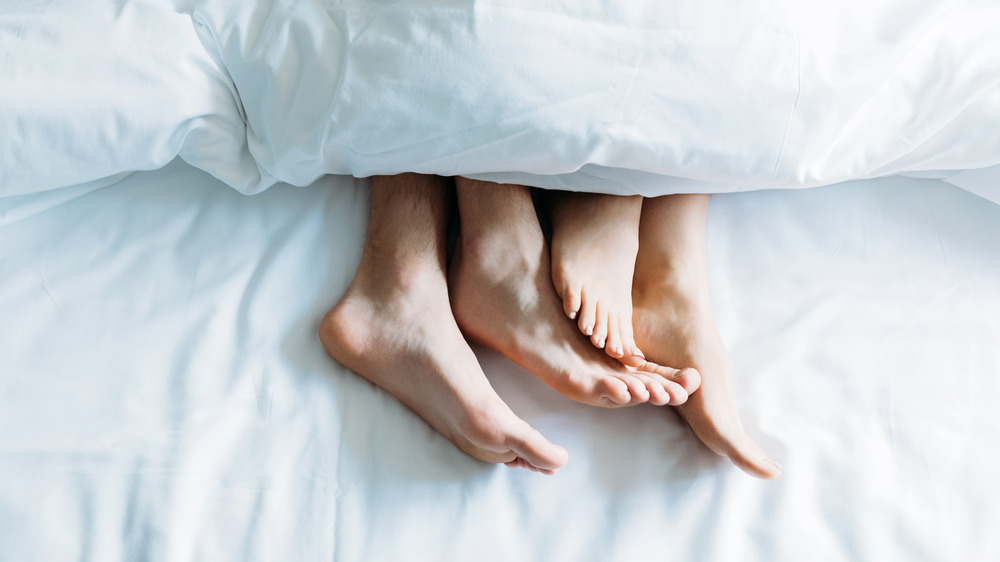This Might Explain Why You Feel Sore After Sex
Last night's sex was incredible, but today it's almost like you're paying the price for the pleasure. Your vagina is sore. Pain isn't usually associated with sex (unless you agree to it consensually), and that postcoital discomfort could indicate any number of things. Luckily, some of them can be fixed with a simple solution.
Here are a few reasons why you might be sore after sex.
Too little lubrication. This is one of the most common causes of pain during or after intercourse, according to Self. Every woman produces natural lubrication when excited. The amount varies depending on such factors as age, birth control, and meds. But when the vagina isn't properly lubed up, the friction of intercourse can cause tiny tears, leading to pain. Even if you normally produce enough lubrication, you may sometimes experience a problem with wetness if you didn't engage in enough foreplay. The solution? Well, more foreplay of course, which will provide the time for your body to ramp up the lubrication. You can also supplement your natural moisture by using an alcohol-free lube before and even after sex, to soothe pain from the tears.
The sex was very vigorous, fast, or prolonged. Any one of these types of sex can lead to postcoital pain, and that's probably due to the lack of lubrication. Really going for it may feel passionate in the moment, but if the lubrication is not sufficient to counteract the intense or prolonged friction, then those tiny painful tears may appear (per Women's Health). To treat the pain resulting from a rough session of sex, try taking a warm bath sprinkled with unscented Epsom salts. And next time you're tempted to go from 0 to 60 in a flash, remember that slow and gentle at the start is a better idea — from your vagina's point of view.
More reasons why you may feel sore after sex
The Pill is the culprit. If you're on a low-dose combo pill, your vaginal tissues may be thinner and drier than usual — and therefore more prone to irritation and pain. These types of pills lower your body's levels of estrogen and testosterone, hormones that produce moisture in vaginal tissue. The solution is to use a personal lubricant during sex. If you're still bothered by dryness and pain, talk to your healthcare provider about possibly changing your Rx.
You have an infection. If the soreness is accompanied by burning, itching, painful urination, or abnormal discharge, you may have a condition that needs to be treated by a doctor, such as a yeast infection, bacterial vaginosis, or STI. With a yeast infection — super common among women — the vulva becomes inflamed, leading to uncomfortable intercourse, while lubrication produced by arousal could exacerbate your other symptoms. The best advice is to contact your healthcare provider.
There's something else going on. Frequently occurring pain during intercourse could indicate any number of conditions, from a uterine fibroid to endometriosis to vulvodynia, a chronic vaginal pain that lasts for at least three months, with no clear cause. So if you suffer often from pain during or after sex, see your doctor.

